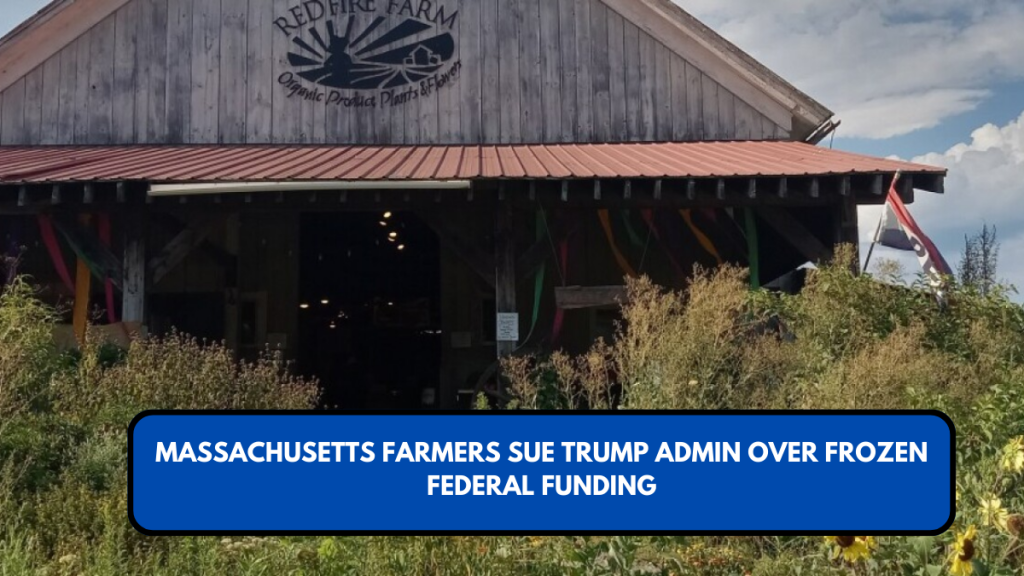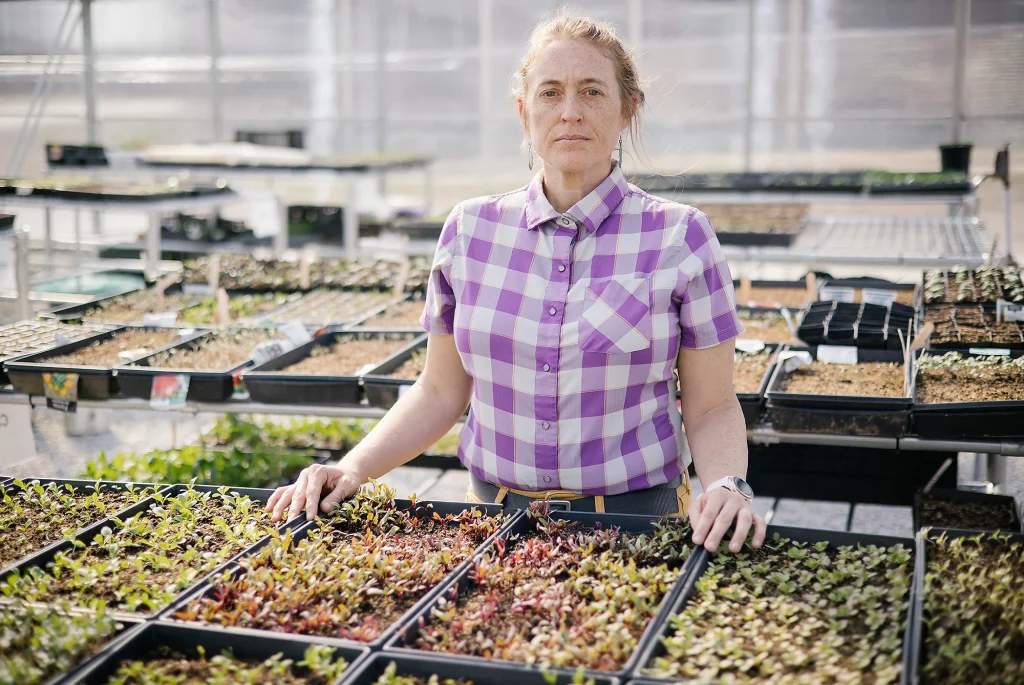
Farmers across Massachusetts are taking legal action against the Trump administration after federal funding earmarked for clean energy and agricultural support was abruptly frozen. At the center of the lawsuit is Red Fire Farm, an organic farm in Granby and Montague, which was awarded a $125,000 federal grant to install solar panels — money that is now on hold due to an executive order.
The funding freeze is part of a broader suspension of spending from the Inflation Reduction Act (IRA), a landmark climate and energy bill passed in 2022 during the Biden administration. The executive order, signed earlier this year by President Donald Trump, has put billions of dollars in limbo, directly impacting renewable energy initiatives and environmental programs nationwide.
Farmers and Nonprofits File Lawsuit
On March 20, 2025, the environmental law organization Earthjustice filed a lawsuit on behalf of Red Fire Farm and several nonprofit groups. The lawsuit alleges that the Trump administration’s freeze is unconstitutional, violating the Administrative Procedure Act (APA) and overstepping the executive branch’s authority by halting funds already approved by Congress.
“The funding freeze is unlawful and unjust,” said Ryan Voiland, co-owner of Red Fire Farm. “We were depending on this grant to install solar panels and reduce our dependence on the power grid.”
The grant in question was issued through the USDA’s Rural Energy for America Program (REAP), which supports farms and rural businesses in implementing renewable energy projects. More information about REAP can be found on the official USDA REAP website.
Earthjustice argues that the administration’s actions directly threaten local farmers’ ability to innovate and survive in an increasingly competitive and climate-affected agricultural industry.
“This funding is not optional — it was passed by Congress and signed into law. The executive branch cannot ignore that,” said a representative from Earthjustice.
Local Impact and Rising Concerns

Red Fire Farm’s halted solar project is just one example of the wider consequences across the region. Farmers in Western Massachusetts say they are already feeling the effects, not just from frozen grants, but also from USDA office closures and other support program delays.
In response, hundreds of farmers and supporters gathered on March 23, 2025, in Hadley, Massachusetts, for a rally demanding the release of federal agricultural and clean energy funds. The protest, titled “Cut Hay, Not USDA,” highlighted the shutdown of the Natural Resources Conservation Service (NRCS) office in Amherst — a vital support center for conservation practices and sustainable agriculture.
More information on NRCS programs can be found on the official NRCS website.
“Without these resources, we’re losing vital tools to protect our soil, our crops, and our future,” said one rally organizer.
Legal Pushback Gains Momentum
The legal battle has already seen early developments. In a related case, a federal judge in Rhode Island issued a temporary restraining order to block the administration’s funding freeze, siding with plaintiffs who argue that the funds were lawfully appropriated and cannot be arbitrarily withheld.
While the ruling applies to certain affected groups, it has given hope to farmers and advocates across the Northeast who face similar delays in accessing their grants.
“This is a fight for the rule of law,” said Earthjustice in a press release. “Our clients are asking the court to force the government to do what the law requires — disburse these funds.”
The full press release and case details can be read on the Earthjustice website.
Looking Ahead: What’s at Stake?

The Inflation Reduction Act, which allocated over $20 billion to rural energy and agricultural conservation programs, has been seen as a cornerstone of America’s transition to a clean energy economy. With the Trump administration placing much of it on hold, stakeholders warn that the freeze could stall critical progress — especially in farming communities that rely on clean energy to offset rising operational costs.
Further, many legal experts suggest that continued litigation could delay access to funding even longer, putting additional financial stress on small and mid-sized farms already struggling with inflation and supply chain instability.
The USDA has yet to comment directly on the lawsuit but has updated some applicants through internal communications, noting that disbursements are temporarily paused pending “administrative review.”
Farmers and environmental groups continue to urge Congress and the courts to act swiftly to unblock these funds and restore confidence in the government’s role in supporting rural America.



